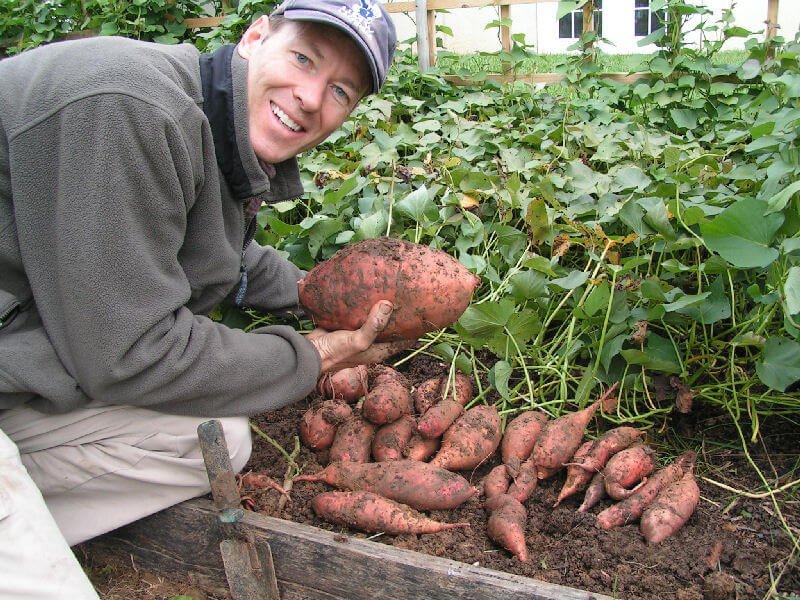Of all the plants that humanity has turned into crops, none is more puzzling than the sweet potato. Indigenous people of Central and South America grew it on farms for generations, and Europeans discovered it when Christopher Columbus arrived in the Caribbean.
In the 18th century, however, Captain Cook stumbled across sweet potatoes again — over 4,000 miles away, on remote Polynesian islands. European explorers later found them elsewhere in the Pacific, from Hawaii to New Guinea.
The distribution of the plant baffled scientists. How could sweet potatoes arise from a wild ancestor and then wind up scattered across such a wide range? Was it possible that unknown explorers carried it from South America to countless Pacific islands?
An extensive analysis of sweet potato DNA, published … in Current Biology, comes to a controversial conclusion: Humans had nothing to do with it. The bulky sweet potato spread across the globe long before humans could have played a part — it’s a natural traveler.
…
“We find very clear evidence that sweet potatoes could arrive in the Pacific by natural means,” said Pablo Muñoz-Rodríguez, a botanist at the University of Oxford. He believes the wild plants traveled thousands of miles across the Pacific without any help from humans.
Read full, original post: All by Itself, the Humble Sweet Potato Colonized the World































